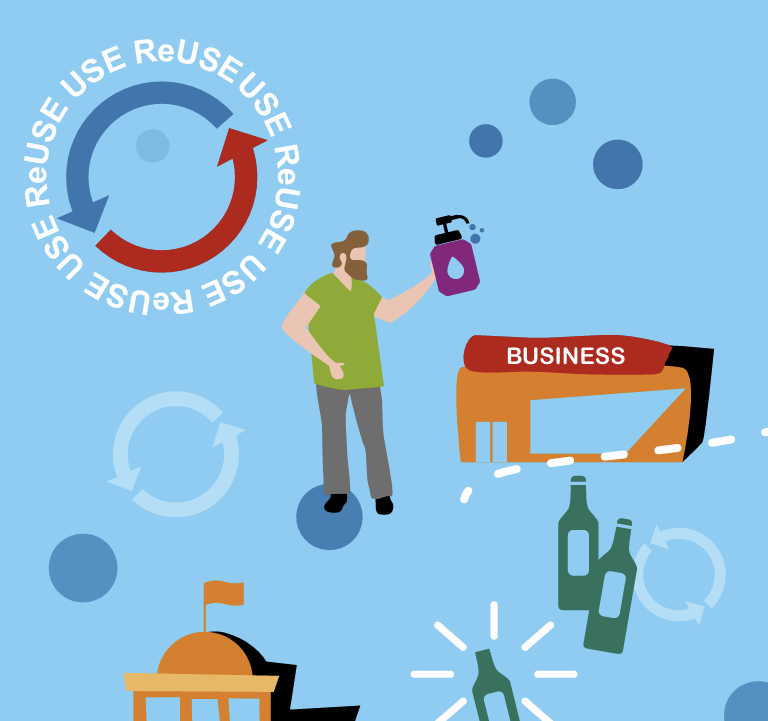Role of municipalities:
Cities have density and scale of citizens, businesses, material and resource flows. Depending on the level of interest, available capacity, and competencies, municipalities can get involved in the CCL project in different forms:
a) Connect stakeholders and promote collaborative cooperation
b) Lead by example and offer/procure reuse solutions/services (e.g. reusable cups for public events)
c) Regulate and incentivize reuse schemes
d) Define and communicate a circular vision and strategy
e) Embed circular principles in their infrastructure and services.
Role of national ministries:
National ministries play a crucial role to develop enabling framework conditions for reuse systems. Within the CCL project, the main focus will be to develop and test practical solutions with businesses and municipalities on the ground.
Role of women:
The shift to a circular economy offers a potential to tackle structural challenges and inequalities. Therefore, understanding this shift as an opportunity for women’s participation in local circular economies is essential to encourage gender equality in this momentum. Women not only play a crucial role in environmentally sustainable consumption, influencing a substantial portion of household purchases but should also be recognised as knowledge bearers and decision-makers involving them in addressing global challenges. By raising awareness about sustainable consumption and production and by encouraging women to take on leadership and managerial positions, a foundation for a more inclusive and gender equal circular economy is created.
Companies that embrace gender diversity are more likely to engage in sustainable business parties and to adopt sustainable practices by prioritizing social and environmental impacts in their business strategies. However, women face several barriers such as low pay, low security and limited social mobility when entering and advancing in economic and entrepreneurial activities. This highlights the importance of policies engaging in gender equality in the context of the circular economy.
Role of businesses:
Different businesses could get involved in the Circular City Labs project:
a) Businesses with strong intentions and concrete plans to introduce/test reusable packaging
b) Reusable packaging producers
c) Reuse system providers (e.g. businesses with digital tools supporting reuse schemes, businesses focusing on reuse logistics such as washing of containers)
Role of other actors:
Other actors, such as civil society groups, academia or circular economy hubs, will be invited to participate in the labs by attending (online) events, providing technical inputs, sharing their perspectives at panel discussions, contribute to awareness raising and behavioral change, etc.








